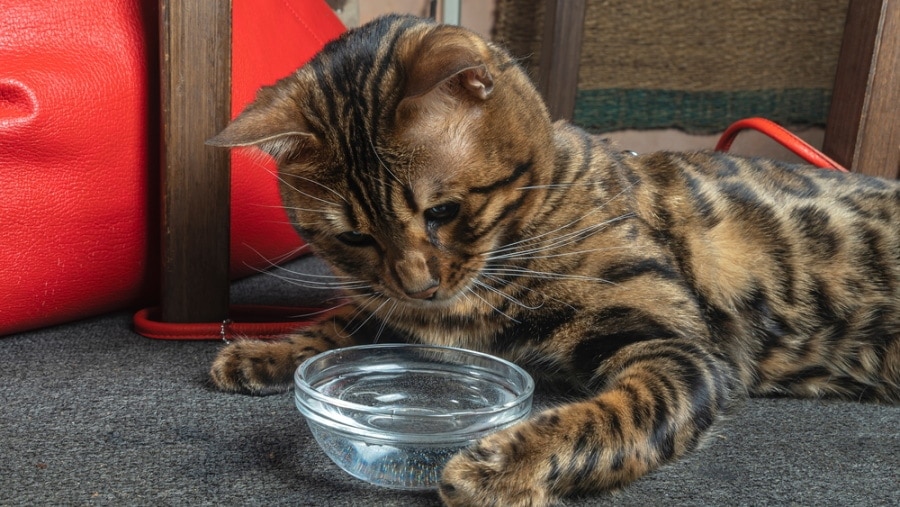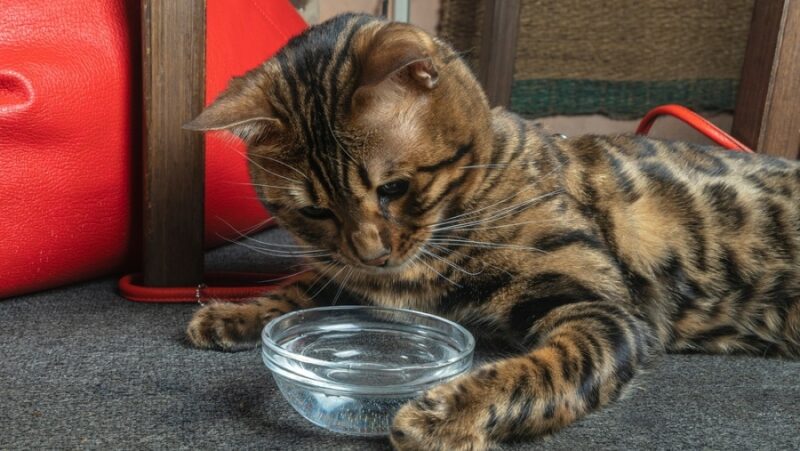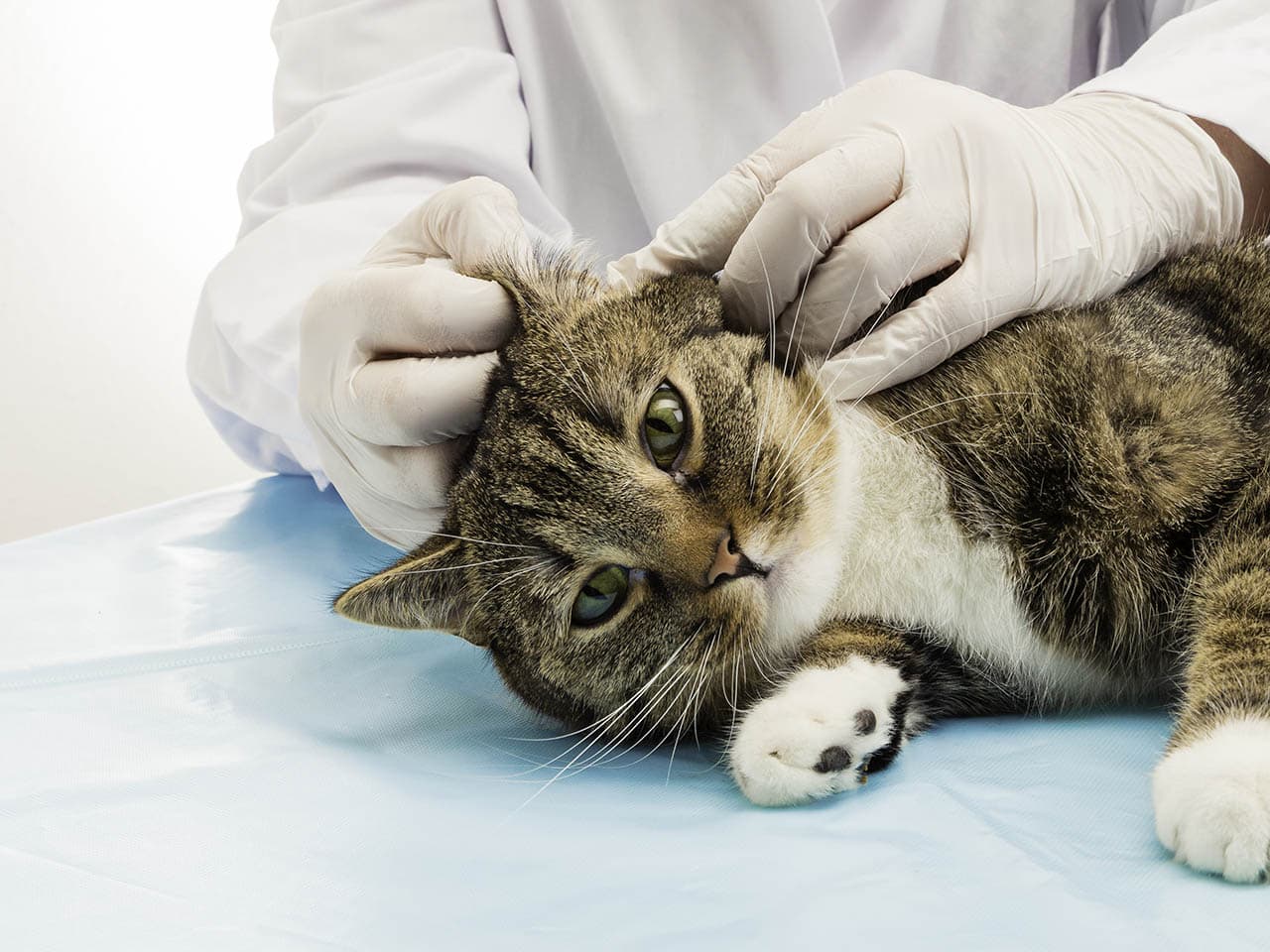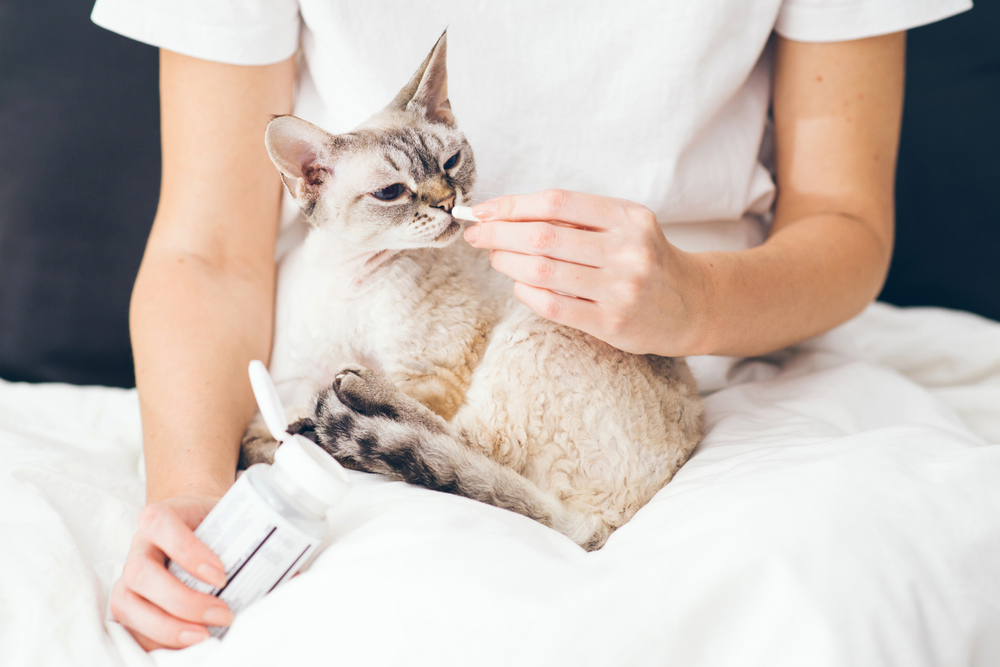A cat’s water intake depends on a number of factors, including their diet, age, and activity levels. However, what if you’ve noticed your cat drinking more than they usually do? Some sick cats will hover over their water bowl as if drinking water is all they can think about. This could be a sign that something is amiss. Veterinarians refer to excessive thirst as polydipsia. This is often, but not always, accompanied by excessive urination (polyuria).
There are four main causes of increased thirst in cats: kidney disease, diabetes mellitus, hyperthyroidism, and compensation for dehydration.
The 4 Reasons Why Your Sick Cat is Hovering Over Their Water Bowl
1. Chronic Kidney Disease
Chronic kidney disease (CKD) is essentially kidney failure. This is a progressive disease, meaning it gets worse over time (typically over several years), and it is fairly common in elderly cats. It is irreversible, meaning there is no cure. In most cases, the cause of kidney disease remains unknown. In some cases, tumors, infections, toxins, and genetic diseases may be identified as the cause.
The kidneys are responsible for maintaining fluid balance in the body and filtering blood, excreting waste products, and excess fluid in urine. When the kidneys aren’t working properly, as is the case in cats with CKD, they lose too much fluid through urine. This results in increased thirst, as the cat tries to “keep up” with the water being lost in urine.
Cats with CKD will spend a lot of time at the water bowl; they usually urinate frequently, while showing general signs of poor health, including weight loss, lethargy, and vomiting.
2. Diabetes Mellitus
Yes, cats can be affected by diabetes too. Diabetes mellitus, commonly referred to as simply “diabetes” in people, occurs when there is a lack of insulin or resistance to insulin in the body. The hormone insulin is produced by the pancreas in response to rising blood sugar levels; it tells the body to move the sugar from the bloodstream into cells, where it can be used for energy. Cats are affected by “type 2” diabetes, whereby the body does not respond appropriately to insulin. This leads to high blood sugar levels.
Common signs of diabetes include increased thirst, increased urination, weight loss, and increased appetite. Most cats will remain well in themselves unless they have suffered a complication from their diabetes. Treatment options are generally very effective.
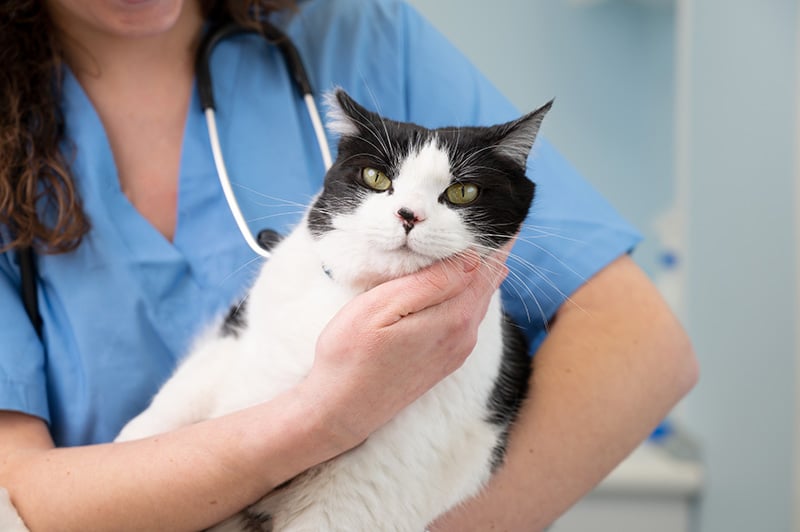
3. Hyperthyroidism
The thyroid gland is a small gland with big responsibilities. It sits at the base of the throat and produces a number of hormones, including ones that regulate growth and metabolism. In cats, a benign tumor or overgrowth of the thyroid gland causes excessive production of thyroid hormone. This, in turn, leads to an increased metabolic rate.
Cats with hyperthyroidism tend to burn their energy too fast, losing weight despite having a ravenous appetite. These cats will often drink and urinate excessively, display irritable or restless behavior, and can be prone to heart disease. Thankfully, several treatment options exist and most cats with hyperthyroidism can be managed very effectively.
4. Compensation
Vomiting and diarrhea are common in cats. This can be caused by diet changes, infections, hairballs, irritable bowel syndrome, and many other causes. When fluid is lost in vomitus or stools, cats can become dehydrated. This can result in increased thirst to restore hydration, and a cat hovering over the water bowl.
Dehydration can, on the other hand, lead to a decrease in water intake if the affected cat is feeling lethargic or painful.
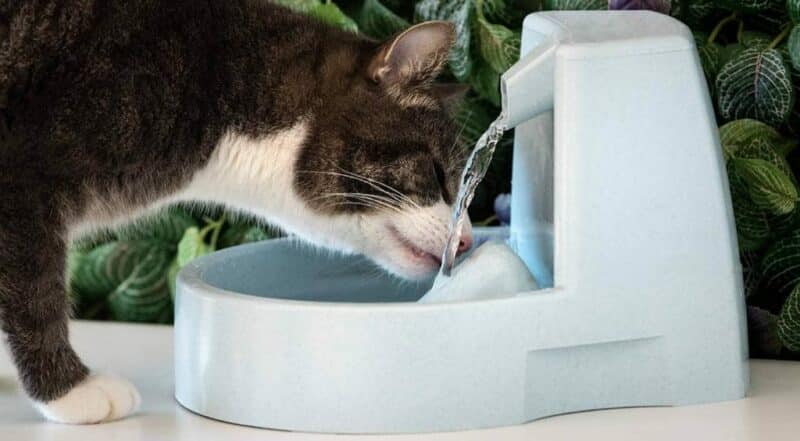
Conclusion
Increased thirst can be a sign that a significant disease is present. Kidney disease, thyroid disease, and diabetes are the “big three”, though others are also possible. In general, a cat hovering over the water bowl is a cat that should be examined by a veterinarian. Something may be going on that is causing them to feel unwell and affecting their quality of life. The above three diseases can all be fairly easily diagnosed using a combination of blood and urine tests.
As a rule of thumb, a cat drinking more than 100ml per kilogram of body weight is drinking too much. This equates to about 4 ounces per 5 pounds of body weight.
Featured Image Credit: kalyanby, Shutterstock

